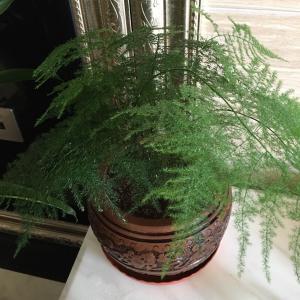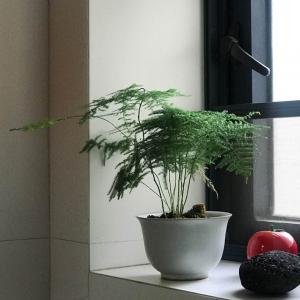Posts (312)
气泡布鲁鲁
2024-09-03

The Allure of the Open Road: A Journey of Discovery
Traveling by car gives you the flexibility to explore at your speed, which embodies the spirit of adventure. With the prospect of uncharted territory, the open road entices travelers with the prospect of surprising discoveries at every turn. Discoveries are revealed along the way, and the final goal only forms a small portion of the overall exploration experience.Scenic Routes: Nature's Grand Canvas
Stunning paths that highlight the splendor of nature are frequently seen throughout epic road excursions. The trip becomes a visual feast as it passes through expansive deserts, hilly regions, and meandering coastal highways. The charm of the open road is found in the constantly shifting landscape that enthralls drivers and compels them to pause along the way to take in the amazing vistas.Hidden Gems Off the Beaten Path: Local Treasures Await
The real magic happens when you step off the beaten path. Those who are ready to venture off the beaten path will find hidden treasures. The pulse of a place can be felt in its sleepy towns, quaint cafes, and neighborhood markets. These surprising discoveries give the road trip experience more dimension and leave a lasting memory of real interactions.Roadside Attractions: Quirky Delights and Curiosities
The wacky surprises that dot the route are known as roadside attractions. Travelers are encouraged to stop and marvel at the ingenuity of human expression through the enormous sculptures, oddball museums, and strange landmarks that line the roadways. A routine drive is elevated to an exciting journey with these roadside oddities.Culinary Adventures: Tasting the Flavors of the Road
Getting to experience different local flavors while traveling is one of the pleasures of road-tripping. The culinary journey is just as important as the visual one, with everything from roadside eateries providing comfort cuisine to gourmet gems in unexpected settings. Discovering local cuisines transforms every stop along the way into a gastronomic adventure, adding a delightful dimension to the road trip experience.Historical Significance: Stories Along the Road
Our highways are frequently remnants of the past. We go through scenic areas rich in historical significance on epic road journeys. Traveling along a portion of the famed Route 66 or a route bordered by historic sites allows the trip to become a historical story, interweaving historical events into the whole experience.Photographic Opportunities: Capturing Moments in Time
Photographers love long road journeys because they present a plethora of chances to get candid shots, unusual locations, and breathtaking scenery. The journey becomes a visual journal of the route and the beauty found along the way as each bend and turn offers a fresh composition.Spontaneity and Flexibility: Embracing the Unplanned
A road trip's spontaneity is what makes it so beautiful. Road excursions provide flexibility and the excitement of the unexpected, in contrast to strict travel schedules. Unexpected stops, spontaneous experiences, and coincidental detours all become part of the story and give the voyage a surprising element.The Endless Road: A Beginning, Not an End
An epic road trip is a journey that takes you farther than you could have imagined when you set out on it. Long after the engine has been switched off, the journey's memories, encounters, and lessons remain. With its magical surprises and undiscovered gems, the wide road comes to represent life as a never-ending journey full of learning, development, and the sheer joy of travel.Conclusion
Epic road journeys are a celebration of adventure, a nod to our innate need to travel, and a tribute to the undiscovered beauties that we come upon. An everyday journey can become an amazing adventure when one can explore and pique curiosity on the open road. The real pleasure in road trips is found in the discoveries made along the way; the goal is only a point on a map. Hence, for your next great adventure, fill up the tank, let down the windows, and let the open road reveal its hidden gems.
Article
气泡布鲁鲁
2024-09-03

The Freedom of the Open Road
The world is a canvas waiting to be filled with experiences for the digital nomad; it is more than just a map. The ability to choose where you work is both freeing and difficult, whether you work from the busy Berlin coffee shops or the peaceful Bali beaches. The desire to travel and experience the diversity of cultures and landscapes drives the digital nomad, who is unconstrained by cubicles. But this freedom also means that you have to bear the burden of keeping some semblance of routine in the face of constant change. The fine art of balance holds the key to a prosperous journey as a digital nomad.Creating a Mobile Office: More Than Just a Laptop
A well-designed workspace that can adjust to various settings is what the nomadic office is, not just a laptop on the beach. A dependable laptop, noise-canceling headphones, and a portable hotspot are just a few of the essentials that successful digital nomads know they need to have in their toolbox. However, maintaining a productive mindset is just as important as having the right tools for the job in a mobile office. Discipline and flexibility are needed to focus in a busy café or among the noise of a co-living space. It's about committing to work goals while accepting the unpredictable nature of a nomadic lifestyle.Time Zones: The Double-Edged Sword
The constant juggling of time zones is one of the main problems faced by digital nomads. Bali's sunrises provide a beautiful backdrop, but getting up early to attend a client meeting in New York could be necessary. Prosperous nomads master time zone switching, alternating with ease between work and play. The secret is to make a flexible schedule that works with various time zones. The key is to maximize output during periods of intense concentration and to give yourself time for exploration when you're not working. The digital nomad recognizes that time is a flexible concept that can be shaped to accommodate work obligations and the attraction of a new location rather than just a ticking clock.Community and Connection: The Nomad's Lifeline
The lifestyle of a digital nomad can be isolating even though it offers unmatched freedom. Developing a community while traveling becomes crucial for both overcoming loneliness and advancing professionally. Online forums, co-working spaces, and nomad hubs become indispensable resources for the nomadic worker. Successful digital nomads recognize the value of networking and teamwork. Informal get-togethers in Chiang Mai or co-working spaces in Lisbon can provide doors to unanticipated possibilities. In the fleeting world of constant movement, the nomadic community provides a sense of belonging by giving tips on where to find the best Wi-Fi and hidden gems in a city.Work-Life Integration: The Nomad's Philosophy
The digital nomad effortlessly combines work and travel, not just balancing them. Developing a comprehensive approach to the nomadic lifestyle is more important than dividing life into discrete work and leisure time. In Barcelona, the café serves as a meeting spot for locals as well as an office. The Himalayan hike turns into more than just a reprieve—it serves as a creative spark. Successful digital nomads are aware that life and work are interwoven threads rather than opposing forces. It's about enjoying the overlap, about recognizing the beauty of combining board meetings with beach walks and deadlines with sunsets.Mindful Exploration: The Nomad's Mantra
It's simple to become engrossed in the frenzy of never-ending movement when exploring new places. Mindful exploration is a skill that successful digital nomads adopt. They enjoy every moment instead of feeling compelled to cross everything off a tourist checklist. It's all about getting fully immersed in the community, tasting delectable local fare, and picking up a few phrases in the local tongue. Self-discovery is a key component of mindful exploration, in addition to the destinations. Traveling nomadic becomes an opportunity for personal development, a place to face obstacles, and a wellspring of inspiration for endeavors in life and work.Conclusion
Stories of resilience, flexibility, and the quest for a harmonious balance between work and travel abound in the pages of the diaries of digital nomads. A mindset that welcomes change, values connection, and finds joy in the fluidity of time and space is necessary for this lifestyle, which goes beyond simply packing a suitcase. For those who are contemplating a nomadic lifestyle, keep in mind that it's not just about getting somewhere; it's also about the careful balancing act between the sound of keys being clicked and footsteps on a foreign street.
Article
气泡布鲁鲁
2024-09-03

The Global Tapestry on Your Plate
Consider your gastronomic journey as a passport to the kitchens of the world, with every bite serving as a stamp. Every destination offers a different palette of flavors just waiting to be discovered, from the vibrant street markets of Bangkok to the fragrant spice bazaars of Marrakech. It can be argued that a culture's food is its soul. Not only is food important, but it's also a reflection of customs that have been passed down through the ages, a tale that is revealed by the slow simmer of a stew or the sizzle of a wok. You are experiencing a place's essence rather than just eating when you go on this worldwide tasting tour.Local Markets: Where the Story Unfolds
A stroll through the vibrant local markets completes any culinary adventure. A kaleidoscope of colors, scents, and the steady hum of everyday life can be found in these colorful hubs. Every market illustrates the region's agricultural bounty and culinary legacy, from the unique fruits of Southeast Asia to the handcrafted cheeses of Europe. Talk to the people, offer to buy only fresh produce, and let the market dictate what you serve. Every transaction in these markets is a cultural exchange; they are living museums. Each food component contributes to the overall culinary identity of the place: spices, textures, unusual fruits, etc.Street Food: The Soul of the Streets
You have to get out on the streets for a real immersion into the culinary soul of a place. Street food represents the true culinary identity of a community and is more than just a quick snack. Savor a hot bowl of pho cooked by a street vendor in Hanoi's winding lanes, using a family recipe that has been passed down for generations. Discover a hidden gem in Mexico City where the mastery of spice is refined over an open flame by following the scent of tacos al pastor. The appeal of street food is in the shared experience it provides, in addition to its accessibility and affordability. Get together over a meal with the locals, exchange tales, and let the sound of the grill serve as the background to your newfound camaraderie.Home Cooked Wisdom: Inviting Tradition to the Table
Home-cooked meals are where a culture truly comes to life, even though street food can only partially convey its energy. A trip through someone's kitchen, where family recipes are treasured possessions, is a must for any serious foodie. Experiences that offer a direct window into a culture's essence include learning the craft of making handmade pasta in an Italian nonna's kitchen or seeing the intricate dance of spices in an Indian home. A taste of the love and history simmering in pots and pans, home-cooked meals tell a personal story. They provide an insight into the everyday routines, morals, and cultural significance of particular dishes for the local populace. One recipe at a time, customs are passed down in these kitchens.Culinary Fusion: Where Traditions Collide
You will travel to places where different culinary traditions converge to create mouthwatering and distinctive fusions as your culinary adventure takes you. A symphony of flavors dances on your palate in places like Singapore, where influences from China, Malay, India, and Peranakan cultures converge. Fusion cuisine is a reflection of how cultures are constantly changing and the beautiful chaos that results from combining various culinary traditions. It is more than just a fad. Similar to Crossroads, these fusion hubs bring together ingredients from all over the world to create something completely new. It serves as a reminder that despite our differences, people can come together over food and create something truly amazing.Conclusion
A culinary adventure ultimately involves more than just the food you sample—it also involves the tales you discover along the way. It is about warmth felt in a stranger's kitchen, secrets traded in a busy market, and laughter shared over a shared meal. Every taste is like a brushstroke on the canvas of your memories, painting a vibrant picture of moments that will always remain imprinted in your heart and on your palate. So prepare for a culinary journey and pack your bags. Explore the world through the universal language of food, and let your taste buds lead the way. From Tokyo's kitchen tables to Marrakech's street food vendors, the world is a feast just waiting to be enjoyed.
Article
气泡布鲁鲁
2024-09-03

Choose Sustainable Transportation:
One of the most significant contributors to carbon emissions during travel is transportation. Opt for sustainable modes of transportation whenever possible. Consider taking trains or buses instead of flights, as they have lower carbon footprints. If flying is necessary, choose non-stop flights, as takeoffs and landings generate the most emissions. When exploring your destination, prioritize walking or cycling. Not only does this reduce carbon emissions, but it also allows you to immerse yourself in the local culture and experience your surroundings more intimately. Public transportation, such as buses or trains, is another sustainable option for getting around.Pack Light and Eco-friendly:
Packing light has several benefits, including reducing fuel consumption during transportation and minimizing waste. Only pack essentials, and choose versatile clothing items that can be mixed and matched. This reduces the weight of your luggage, making transportation more fuel-efficient. Additionally, consider using eco-friendly and reusable travel products. Invest in a refillable water bottle, a reusable shopping bag, and a set of reusable utensils. These small changes will help reduce plastic waste and contribute to sustainable travel practices.Stay in Eco-friendly Accommodations:
Choose accommodations that prioritize sustainability and have environmentally friendly practices in place. Look for hotels, resorts, or guesthouses that have implemented energy-saving measures, waste management systems, and water conservation practices. Many establishments are now certified as eco-friendly, so prioritize these options when making your bookings. If available, consider alternative accommodation options such as eco-lodges, farm stays, or homestays that are built using sustainable materials and operate with minimal environmental impact. These options provide unique experiences while supporting local communities and the environment.Conserve Energy and Water:
Practice energy and water conservation habits during your stay. Turn off lights, air conditioning, and other electronic devices when not in use. Limit your showers and be conscious of your water usage. Reusing towels and linens instead of requesting fresh ones every day also helps conserve water and reduce laundry. Additionally, consider supporting accommodations that use renewable energy sources, such as solar or wind power. These establishments contribute to reducing carbon emissions and promote sustainable practices within the tourism industry.Reduce Single-Use Plastics:
Plastic waste is a significant environmental issue, particularly in tourist destinations. Minimize your use of single-use plastics by bringing reusable alternatives. Carry a reusable water bottle and fill it from filtered water stations or taps. Say no to plastic straws, cutlery, and plastic bags. Instead, carry your own stainless steel or bamboo utensils and reusable shopping bags. If you must use single-use plastics, ensure proper disposal in recycling or designated waste bins. Educate yourself about the local recycling facilities and follow their guidelines for waste separation.Support Local and Sustainable Food Choices:
Food consumption can have a significant impact on the environment, both in terms of carbon emissions and resource usage. Choose to support local and sustainable food choices while traveling. Opt for restaurants and cafes that source their ingredients locally, practice ethical farming methods, and minimize food waste. Try to include vegetarian or vegan meals in your diet, as these have a lower carbon footprint compared to meat-based meals. Explore local markets and try regional, seasonal produce, supporting local farmers and reducing the carbon emissions associated with long-distance transportation of food.Engage in Responsible Tourism:
Responsible tourism involves being mindful of the local culture, environment, and communities you visit. Educate yourself about the local customs, traditions, and cultural norms, and respect them during your travels. Be aware of the impact your actions may have on the local environment and wildlife, and avoid activities that exploit or harm animals. Support local businesses, artisans, and community-based initiatives. Purchase souvenirs that are locally made and sustainable, avoiding products made from endangered species or unsustainable materials.Offset Your Carbon Emissions:
While it may not be possible to eliminate all carbon emissions from your travel, you can offset them by supporting carbon offset projects. Many organizations offer carbon offset programs that invest in renewable energy, reforestation, or clean water initiatives. Calculate your carbon footprint for your travel activities and make a donation to an accredited organization that supports sustainable projects. Traveling provides us with opportunities for exploration, cultural exchange, and personal growth. By adopting eco-friendly habits and making conscious choices, we can minimize our carbon footprint and contribute to sustainable travel practices. Whether it's choosing sustainable transportation, packing light and eco-friendly, staying in eco-friendly accommodations, conserving energy and water, reducing single-use plastics, supporting local and sustainable food choices, engaging in responsible tourism, or offsetting your carbon emissions, every small action makes a difference. By incorporating these tips into your travel routine, you can enjoy your adventures while minimizing your impact on the environment and actively contributing to a more sustainable future. Embrace the power of responsible travel and be a catalyst for positive change.
Article
气泡布鲁鲁
2024-09-03

Expanding Perspectives and Embracing Diversity:
One of the most significant benefits of travel is the exposure to different cultures, traditions, and ways of life. It broadens our perspectives and breaks down stereotypes. When we interact with people from diverse backgrounds, we are able to challenge our preconceived notions and develop a more open-minded approach to the world. This exposure to diversity fosters empathy, understanding, and compassion, leading to enhanced mental well-being. By embracing different cultures and perspectives, we gain a greater appreciation for the world and our place within it, ultimately contributing to personal growth and self-discovery. When we travel, we have the opportunity to witness firsthand how people live, work, and interact in different parts of the world. We learn about their customs, traditions, and values, which can be vastly different from our own. This exposure to new ways of thinking and living encourages us to question our own beliefs and assumptions. We become more adaptable, receptive to change, and accepting of diversity. By embracing these new perspectives, we expand our worldview and develop a more inclusive mindset, which positively impacts our mental health and well-being.Stepping Out of Comfort Zones and Building Resilience:
Traveling often involves venturing into unfamiliar territories, which can be uncomfortable and challenging. However, pushing ourselves beyond our comfort zones is where personal growth truly thrives. When we step out of our comfort zones, we are forced to confront our fears, insecurities, and limitations. This process can be transformative, as it allows us to develop resilience and a greater sense of self-confidence. Traveling presents us with various situations that require us to adapt and problem-solve. Whether it's navigating through unfamiliar cities, communicating in a foreign language, or trying new activities, we are constantly faced with new challenges. By overcoming these obstacles, we build resilience and develop a sense of self-efficacy. We realize that we are capable of handling unexpected situations and that we possess the skills and resourcefulness to overcome adversity. This newfound resilience can extend beyond travel experiences and positively impact our daily lives, empowering us to tackle challenges with a more optimistic and determined mindset.Self-Discovery and Introspection:
Traveling provides us with an opportunity to step away from our routines and obligations, allowing for self-reflection and introspection. Being in new surroundings and removed from our familiar environment can offer a fresh perspective on our lives, values, and priorities. Through self-reflection, we can gain a deeper understanding of ourselves, our desires, and our strengths. When we are immersed in new cultures and environments, we are exposed to different ways of living and thinking. This exposure prompts us to question our own values, beliefs, and aspirations. We may discover new interests, passions, or career paths that we had never considered before. Traveling allows us to break away from societal expectations and explore our true selves. It gives us the freedom to experiment, take risks, and engage in self-discovery. Moreover, traveling often involves moments of solitude and introspection. Whether we are sitting on a quiet beach, hiking through a serene forest, or visiting a historical site alone, we have the opportunity to reflect on our lives and experiences. This introspection provides clarity and allows us to evaluate our choices, goals, and priorities. It gives us the space to align our actions with our values and make intentional decisions that contribute to our personal growth and well-being.Connecting with Nature and Promoting Well-being:
Nature has a profound impact on our mental well-being. Traveling often involves exploring natural landscapes, whether it's hiking through mountains, strolling on beaches, or immersing ourselves in lush forests. Being in nature reduces stress, improves mood, and enhances overall well-being. The beauty and serenity of natural environments provide an opportunity for self-reflection, mindfulness, and inner peace. When we travel to natural destinations, we have the chance to disconnect from technology and immerse ourselves in the present moment. We can engage in activities such as hiking, kayaking, or simply sitting in awe of the breathtaking scenery. These experiences allow us to reconnect with ourselves and the world around us. We become more attuned to our senses, noticing the vibrant colors, the sounds of birds chirping, and the feel of the wind on our skin. This connection with nature helps us to quiet our minds, reduce anxiety, and find a sense of tranquility. Furthermore, being in nature encourages physical activity, which is known to have numerous mental health benefits. Engaging in outdoor activities during travel, such as hiking or swimming, releases endorphins and boosts serotonin levels, improving our mood and overall well-being. The combination of physical activity and exposure to nature creates a harmonious environment that promotes mental and emotional balance.Cultivating Mindfulness and Living in the Present:
Traveling encourages us to live in the present moment and fully immerse ourselves in our surroundings. By embracing new experiences, savoring local cuisines, engaging in cultural activities, and exploring unfamiliar landscapes, we cultivate mindfulness and a heightened sense of awareness. Traveling allows us to let go of worries about the past or anxieties about the future, enabling us to fully appreciate the present. When we are in a new place, we become more attuned to the details and nuances of our surroundings. We notice the architecture, the sounds, the smells, and the tastes that are unique to each destination. This heightened awareness promotes mindfulness, as we become fully present and engaged in the experiences unfolding before us. We savor each moment, relishing in the beauty and richness of the present. Moreover, travel often disrupts our daily routines and forces us to slow down. We may find ourselves in situations where we have no choice but to be patient, adaptable, and flexible. These experiences teach us to let go of control and embrace uncertainty, cultivating a sense of mindfulness and acceptance. By practicing mindfulness during travel, we develop a valuable skill that can be applied to our everyday lives, reducing stress, enhancing focus, and improving our overall well-being. Traveling offers more than just a change of scenery; it has the power to transform our mental health and well-being. By embracing diversity, stepping out of comfort zones, and engaging in self-reflection, travel becomes a catalyst for personal growth and self-discovery. Connecting with nature, cultivating mindfulness, and living in the present moment further enhance the positive impact of travel on our mental well-being. As we explore new cultures, challenge our preconceived notions, and immerse ourselves in unfamiliar environments, we expand our perspectives and develop a greater appreciation for the world and our place within it. We build resilience, self-confidence, and adaptability by pushing beyond our comfort zones. Traveling allows us to step away from our routines and obligations, providing space for self-discovery and introspection. Nature, a constant companion during our travels, promotes well-being and rejuvenation, while mindfulness practices keep us grounded in the present moment. So, if you are seeking personal growth, self-discovery, and improved mental health, pack your bags, embark on a new adventure, and let the transformative power of travel unfold. Embrace diversity, challenge yourself, and cultivate mindfulness as you explore the world. Through travel, you will not only discover new destinations but also uncover the depths of your own potential and well-being.
Article
气泡布鲁鲁
2024-09-03

1. It Can Eliminate Harmful Microorganisms
Coconut oil contains medium-chain fatty acids that have antimicrobial properties which can aid in warding off harmful microorganisms. Since many skin infections, such as acne, cellulitis, folliculitis, and athlete's foot, are brought on by bacteria or fungi, maintaining good skin health is extremely crucial. Direct application of coconut oil to the skin might stop the growth of these microorganisms. This is because coconut oil contains lauric acid, which can fight harmful microorganisms and accounts for roughly 50% of the fatty acids in coconut oil. In one study, 20 different bacterial strains were used to investigate the effectiveness of 30 different types of fatty acids as antibacterial agents. Lauric acid was discovered to be the most effective at preventing bacterial growth. Lauric acid can kill off Propionibacterium acnes, a type of bacteria that causes the onset of inflammatory acne, according to another test-tube study.2. Coconut Oil Might Help With Inflammation
Psoriasis, contact dermatitis, and eczema are just a few of the many types of skin illnesses that frequently involve chronic inflammation. It's interesting that anti-inflammatory effects of coconut oil have been demonstrated. In one study, experts used virgin coconut oil to treat rats' inflamed ears. It was discovered that coconut oil not only reduced inflammation but also pain. Coconut oil may also reduce inflammation by boosting antioxidant status. Antioxidants function by neutralising the reactive atoms known as free radicals in the body, which can cause inflammation.3. Using Coconut Oil To Treat Acne
Although some people believe coconut oil clogs pores, extensive evidence suggests it may really help heal acne. Being an inflammatory condition, acne is often treated with drugs that target and reduce inflammation. Acne treatment may benefit from coconut oil and its components since they may lessen bodily inflammation. Additionally, the medium-chain fatty acids in coconut oil may aid to lessen acne because of their antimicrobial qualities. Lauric acid, which makes up over half of the fats in coconut oil, has been shown in numerous studies to be effective in killing the type of bacteria that causes acne.4. Dry Skin Can Be Moisturised By Coconut Oil
Applying coconut oil on your skin has benefits for inflammation and acne, in addition to keeping your skin nourished. One study compared the effects of coconut oil to mineral oil, a type of petroleum-based oil frequently used to treat dry skin, in patients with mild to moderately dry skin. Coconut oil dramatically increased skin hydration during the two-week research and was just as efficient as mineral oil. Additionally, it has been proven to aid in the treatment of eczema, a skin condition characterized by scaly, itchy rashes. Keeping your skin hydrated can aid in maintaining the integrity of your skin overall, the healing of scars, and the preservation of your skin's barrier function against bacteria.The conclusion
Although coconut oil's health advantages have been extensively researched, the majority of studies on how it affects the skin use test tubes or animals. However, coconut oil may have some potential advantages for skin, such as lowering inflammation, maintaining skin moisture, and promoting wound healing. The medium-chain fatty acids in coconut oil have antibacterial qualities that can help treat acne and shield the skin from noxious microorganisms.
Article
气泡布鲁鲁
2024-09-03

Benefits of Vitamin C
You might gain the following benefits from vitamin C:1. Reduce Under-Eye Circles
After one or two nights of poor sleep, you may notice dark circles under your eyes, which are actually a network of blood vessels located just beneath the skin. Researchers found that vitamin C strengthens the otherwise thin, sensitive skin around the eyes, which helps to lessen and avoid dark circles under the eyes. The anti-inflammatory and elasticizing effects of vitamin C help to conceal the blood vessels beneath the skin.2. Production of Collagen
For the body to produce collagen, vitamin C is extremely necessary. The main component of skin, hair, muscles, and tendons, collagen is what keeps our skin smooth and young-looking. Collagen production decreases with ageing, which can result in sagging skin. Vitamin C helps maintain the skin tight and plump by accelerating the production of collagen and elastin when applied topically. Applying topical vitamin C to the skin can rejuvenate its youthful, smooth appearance and delay the onset of premature ageing.3. Treatment for hyperpigmentation
The most prevalent causes of hyperpigmentation, a common disorder marked by the appearance of darker spots on the skin, are excessive sun exposure and environmental stresses. Even though it's harmless, h yperpigmentation can make you look older. According to a study, vitamin C's antioxidant properties are crucial in reducing sun damage-related signs of ageing and undesirable dark spots. Tyrosinase, an enzyme that contributes to the production of melanin, is also inhibited by vitamin C, reducing hyperpigmentation. Normal dark skin pigmentation will not be lightened by vitamin C; rather, it will only affect the abnormal melanin deposits caused by sun damage.4. Moisturizes Skin
Without enough moisture, the epidermis, or top layer of skin, begins to dry up, resulting in itchiness and early ageing. Your skin needs to be properly hydrated to stay healthy and youthful-looking. Fortunately, vitamin C is proven to aid in the retention of water by the skin, keeping it smooth and plump and preventing it from getting overly oily or dry. Researchers discovered that people who received vitamin C supplements demonstrated considerable and long-lasting improvements in skin hydration, suppleness, and roughness.Final WordThe skin contains high quantities of Vitamin C when you're young, but as you get older, those levels naturally decline. Supplementing with vitamin C skincare items like serums and moisturisers will make skin feel tighter and have a brighter, more even complexion. If you're buying a vitamin C serum, search for bottles that are dark. Because vitamin C breaks down when exposed to light or air, dark glass bottles help keep the vitamin stable and effective.
Article
气泡布鲁鲁
2024-09-03

1. Washing
Because it spends most of the day covered in socks and shoes or exposed to dirt and grime, the skin of the feet is most vulnerable to bacterial and fungal infections. If it is not properly washed and sanitised, the skin between the toes is the ideal environment for bacterial and fungal illnesses to grow. Washing your feet with soap once a day is vital to make sure that sweat and dirt that has been trapped there are removed.2. Preserving Dryness
Itching, burning, skin peeling, and sometimes painful blisters are all symptoms of the common fungal infection known as athlete's foot, which affects the feet. For fungi like athlete's foot to flourish, dampness is the ideal setting. Every time you wash your feet, you must thoroughly dry them, paying particular attention to the space in between your toes, especially if you plan to put on socks and shoes right away.3. Moisturising
Don't restrict your moisturising to just your hands and face. Your feet's skin might become chapped, dry, and scaly from a lack of moisture. When this happens, the skin can become very dry and rough, especially on the heels. Dirt and grime will start sticking to it since this area turns into a magnet for them. Chapped heels can be uncomfortable in addition to looking unpleasant. Every day after washing your feet, make sure to moisturise your feet generously. Petroleum jelly and cocoa butter are both suitable alternatives.4. Removing Rough Skin
It will be useless to moisturise dead skin. It's crucial to first exfoliate the dead layer once a month. Loofas or pumice stones can be used for this, but gently. It also aids in removing the dirt and grime clinging to the dried-out dead skin. Follow it with a nourishing moisturiser and leave it overnight. Another option for scrubbing is to combine sugar and olive oil, adding a few drops of tea tree or mint oil for antibacterial effects.5. Putting Up Socks
Not only is it vital to wear socks to stay warm, but also to protect your feet from environmental harm. The feet are protected by socks from dust and filth that could cling to the cream used on the feet. They also shield against UV rays.6. Wearing Comfortable Shoes
Always wear comfy shoes, never anything else. Wearing tight shoes might cause skin infections or sores; therefore, avoid doing so. Also, stay away from frequently wearing high heels as this could harm your feet's ligaments and tissues. For ease of movement, keeping your feet healthy is crucial, but fortunately, they require very little maintenance. To maintain their optimum appearance and functioning, all you have to do is keep them clean, moisturised, and well-rested.
Article
气泡布鲁鲁
2024-09-03

1. Avocado and Banana Hair Mask
Avocados are a good source of vitamin E, which helps moisturise and thicken hair. Bananas' natural oils, potassium, carbs, and vitamins help smooth and shield your hair from breaking. Directions: 1. Combine one tiny ripe banana and one medium-sized ripe avocado in a bowl. 2. To this paste, add one tablespoon each of wheat germ oil and olive oil. 3. Cover the roots and tips of your hair with this mixture by gently massaging it in. 4. After 30 minutes, rinse with shampoo and cold water.2. Gooseberry, Coconut Oil and Shikakai Powder Hair Mask
Commonly referred to as amla, this fruit is a rich source of vitamin C, flavonoids, and antioxidants, all of which support a healthy scalp and encourage the growth and quality of hair. Shikakai strengthens the roots of your hair while coconut oil nourishes and moisturises your hair. Directions: 1. Combine two teaspoons of coconut oil with one tablespoon each of amla and shikakai powder, and then bring to a boil. 2. Before going to bed, rub this oil onto your scalp after straining it. 3. Use shampoo to wash your hair in the morning.3. Flaxseeds and Lemon Juice Hair Mask
Omega-3 fatty acids and proteins found in flaxseeds aid in the promotion of thick hair. It not only controls dandruff but also improves the suppleness of hair. Directions: 1. Soak some flaxseeds in water for one night. 2. In the morning, combine the flaxseeds with two cups of water and bring them to a boil. 3. When it thickens, turn down the heat and add half a lemon's worth of juice. 4. Turn off the heat and let it cool for a little while. 5. Add a few drops of your preferred essential oil.4. Yoghurt and Honey Hair Mask
Yogurt, which is rich in proteins, helps nourish hair, making it stronger and healthier. Its antifungal effects calm frizz, soothe the scalp and regulate hair loss. Because it is an emollient, honey prevents hair breakage by sealing in moisture. Directions: 1: Combine one spoonful of magical honey with two tablespoons of yoghurt. 2: Cover your hair from root to tip with the mask. 3: To distribute the mask evenly, give your scalp a few minutes of massage. 4: After using the mask for 15 to 20 minutes, rinse it off with warm water. 5: After a thorough hair wash, use a hair conditioner.5. Brown sugar and Olive Oil Hair Mask
Olive oil adds hydration to your hair and prepares your hair with moisture, while brown sugar functions as an exfoliant to help you remove sweat and sebum buildup in your scalp. Directions: 1. Combine two teaspoons of brown sugar and one tablespoon of olive oil in a bowl. 2. Make sure to cover every strand while applying the mixture to your hair. 3: Gently massage the scrub in small circular motions into your scalp. 4: Continue wearing the mask for 15 to 20 minutes. 5: Use lukewarm water to rinse. 6. Using shampoo and conditioner, wash normally. Apply these super nourishing hair masks for healthy, nourished hair.
Article
气泡布鲁鲁
2024-09-03

Tomato-lemon mask
1. Puree one tomato using a blender. 2. Add two tablespoons of lemon juice. 3. After thoroughly blending, apply to the face and neck. 4. After twenty minutes, remove the mask by washing it with cold water. The mask will aid in lightening the skin and eliminating any tan.Almond mask
1. Soak 4 to 5 almonds in milk for the night. 2. The following morning, peel the almonds' skins and combine the two ingredients to produce a paste. 3. After putting on a light coating of the paste at night, wash it off in the morning. For a radiant shine on the face, use this mask every other day.Turmeric mask
Turmeric is one of the most widely used ingredients in homemade masks. This spice's therapeutic qualities aid in minimising imperfections and preserving clear skin. 1. To make the mask, combine 1 tablespoon of turmeric powder and 3 tablespoons of lemon juice. 2. After 20 minutes, apply to the face and neck and rinse with water.Yogurt and banana mask
1. Combine mashed banana, two tablespoons of hung curd, and one spoonful of honey thoroughly. 2. Ensure that all the ingredients have been well-mashed. 3. Apply it all over your face, then wait for it to dry. 4. After 30 minutes, rinse your face with cool water. For baby soft skin, use this mask twice a week.Oatmeal mask
Due to the dust and pollution, our skin is subjected to, exfoliation is necessary to keep it healthy. This easy scrub may exfoliate the skin, keeping it smooth and preventing wrinkles. 1. Mix four tablespoons of oatmeal with four almonds that have been crushed. 2. Combine it thoroughly with a tablespoon of honey and some milk. 3. Apply for five minutes, then gently massage for two to three minutes. 4. Use lukewarm water to rinse the scrub away.Watermelon and yoghurt
Watermelon and fresh, unflavored yoghurt keep skin cool and supple. They work well together to heal sunburned skin. 1. Combine a cup of yoghurt with a few medium-sized cubes of watermelon. 2. Apply this mixture with a brush to your face and other sunburned areas. 3. After 20 minutes, rinse off.Multani mitti and Mint
Mint's calming effects help soothe sensitive skin, and multani mitti will remove extra oil from your skin. 1. Grind a handful of clean mint leaves into a paste. 2. Combine the mint paste with half a cup of multani mitti to make a thin paste. 3. Use on the face and neck region. After drying, wash.Sandalwood and Rosewater
Indians have long used sandalwood as a treatment to calm the skin and give it a healthy shine. Rose water has a cooling effect. 1. Make a paste out of 2 tbsp of pure sandalwood powder and rose water. 2. Adjust consistency. Apply to the face for immediate cooling and skin rejuvenation. Try these amazing face masks to witness smooth, healthy and glowing skin.
Article
Related Users
Elite Article


























